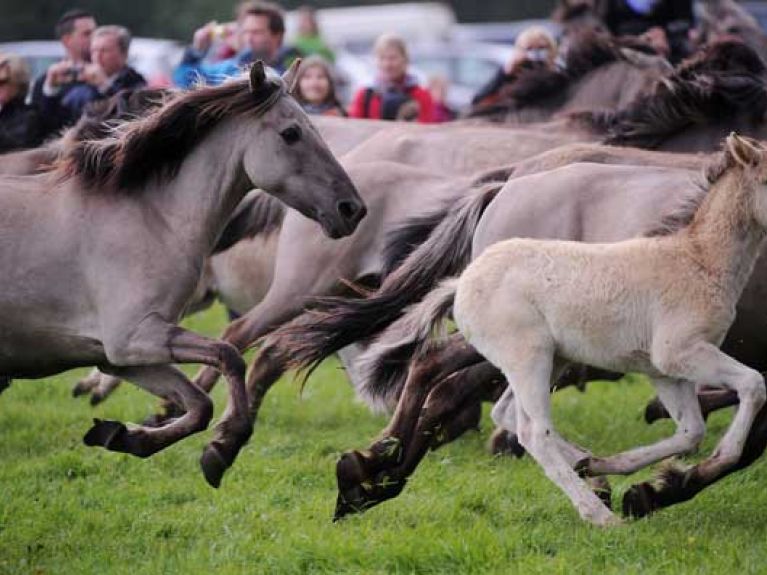The wild horses of Dülmen
The Dülmen horse is the “Endangered Livestock Breed 2014”

When people think of wild horses, many think of mustangs in the United States or Camargue horses in southern France. But there are also such wild animals in Germany: the Dülmen horses. At the International Green Week in Berlin, they will be presented as the “Endangered Livestock Breed 2014”. There are only 485 of these animals. The Dülmen horses are on the “Red List of Threatened Species” in Europe and have been classified by the Society for the Conservation of Old and Threatened Livestock Breeds as “critically endangered”.
The wild horses from Westphalia are said to have been already described by Caesar’s annalist: small shaggy animals that move very swiftly. The first documentary evidence that mentions the existence of the oldest breed of small horses in Germany is from 1316. The original habitat of the Dülmen horses is near the eponymous town of Dülmen between the Ruhr area and Münster. In Germany of the early nineteenth century there were still isolated hunting grounds where the horses lived in the wild. But because of the redistribution of agricultural land in the post-Napoleonic period, the animals lost their native habitat.
In 1850 Alfred, Duke of Croy, caused the last of these wild horses, a small herd of about twenty animals, to be captured and placed in an enclosure in the Merfelder Bruch that he provided. It is thanks to Croy that the Dülmen horses were not exterminated. Today about 360 of the ponies live in the Dülmen reserve. Outside this wild life preserve, there are today about 125 of the animals in the Federal Republic.
In order to control the population in the reserve, since 1907 all wild horses have been herded into an arena on the last Saturday in May and the one-year old stallions captured with bare hands. The herd is then released back into the wild and only the young stallions are sold. Outside the wild, Dülmen horses are prized as riding and family horses and are suitable for use in rural conservation.
International Green Week Berlin, 17 to 26 January 2014

